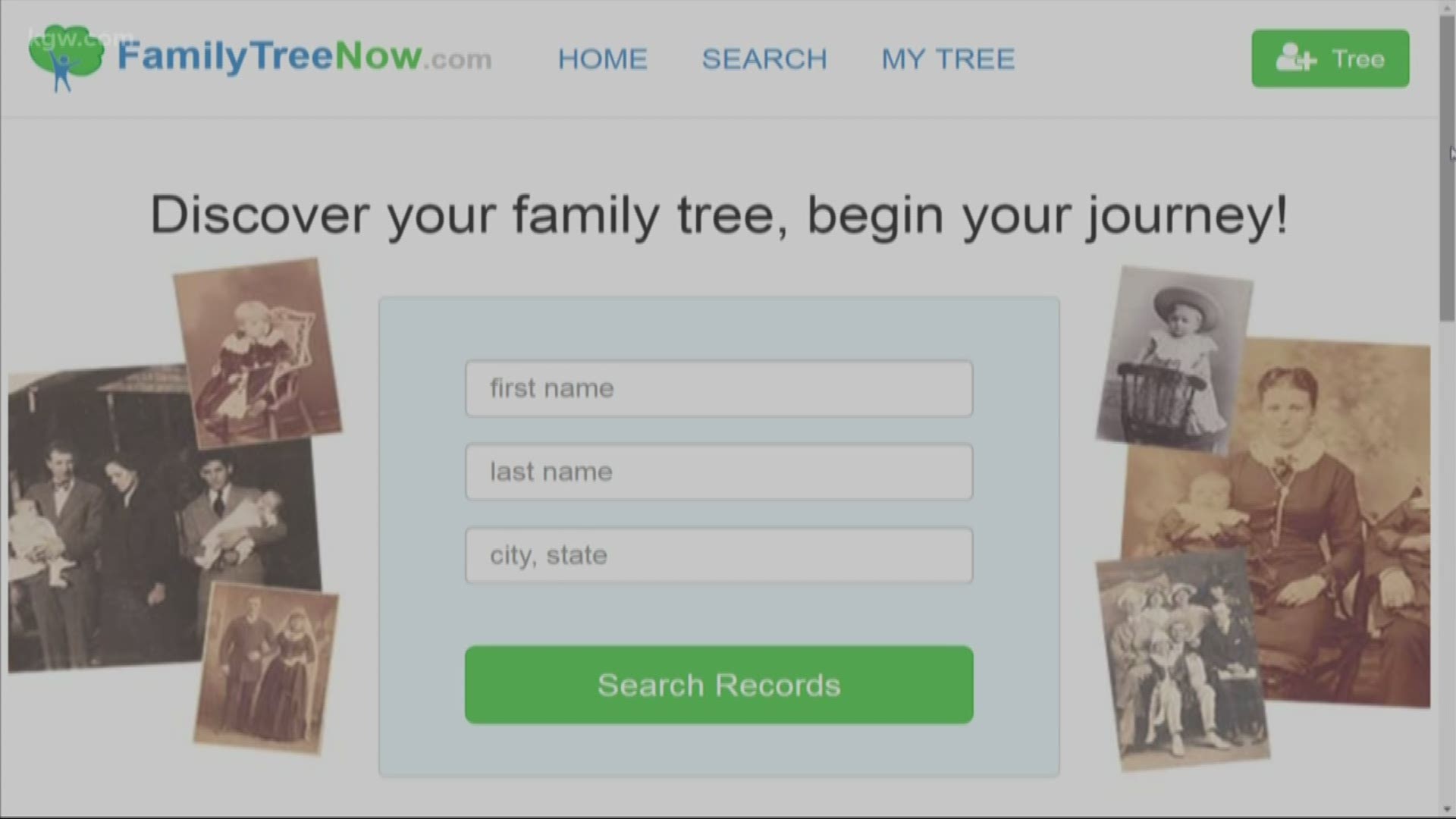PORTLAND, Ore. — Joining in on the current trend in genealogy and family tree websites, FamilyTreeNow lets you search anyone's name for free and get a list of known relatives, addresses, and phone numbers.
The headline on the homepage reads, “Discover your family tree, begin your journey!”
So it looks like a solid genealogy website, complete with old-timey photos and birth certificates. But the Genealogical Forum of Oregon does not recommend using the site.
“To me personally, it's kind of creepy,” said Vince Patton, the President of the Genealogical Forum of Oregon. “It doesn't strike me as a genealogy site, it strikes me as a snoop-on-people site.”
Snooping on people is extremely easy on FamilyTreeNow. Just enter a first and last name on the homepage, along with a city and state, and you might be surprised to see just how much information comes up.
We asked several random people in downtown Portland to search for themselves. For each of them, the website populated a list of possible relatives, current and past addresses, and phone numbers.
“So, it has my wife, my dad, my mom, my brother,” said Phill Horton, who checked the website with us.
“I mean, it had all my phone numbers, I recognized those phone numbers and addresses,” said Lisa Sharp when she tried it. “I don't think I like that too much.”
Rosalind Carmack easily found herself on the site. “It's very surprising how easily this all came up,” she said.
And all of that information is available for free.
“At least you can't call it a scam, because they don't appear to be making any money off of you," Patton said. "But I question whether they're being honest about their true intent.”
KGW found for the most part that the information listed, like current addresses, was accurate.
“Pretty scary accurate actually,” Horton said.
“It's a little creepy,” Sharp said.
“It's not encouraging. It's not. It's disturbing for the lack of privacy,” Carmack said.
KGW reached out to FamilyTreeNow weeks ago hoping to find out more about where they get information and the purpose of the site, but no one ever got back to us. The website says information is pulled from public records, like census, birth, death, and military records to name a few.
Danielle Kane from the Better Business Bureau said public records and social media make it pretty easy for our personal information to end up on websites like this.
“You're wondering, 'Well, how did they couple my birthday with my professional background, with the city I'm from, and my mom and dad?'” Kane said. “Well, between public records, a little LinkedIn, a little Facebook, you can have your whole life story.”
Kane recommends limiting the amount of personal information you put online. But we learned there are some things you cannot really control.
While the DMV and post office both said they do not sell personal information, the same cannot be said for Oregon's Voter Registration List, which includes addresses. Anyone can buy the list for $500, as long as they agree the information will not be used for commercial purposes.
“This type of finding your information online is not going to go away, so the shock factor I think is going to become less and less,” Kane said. "What people need to realize is that shock factor is going to go down, your cyber security awareness needs to go up."
The good news, at least in the case of FamilyTreeNow, you can opt out of the site.
To remove your information, follow this link: https://www.familytreenow.com/optout
Besides having access to your address, sites like this can also make it easier for hackers to get into your accounts.
Just think about the most common security questions you are asked online: "What's your mother's maiden name?" or "What city were you born in?"
Those answers are surprisingly easy for anyone to figure out, so experts said not to use them for security online.

